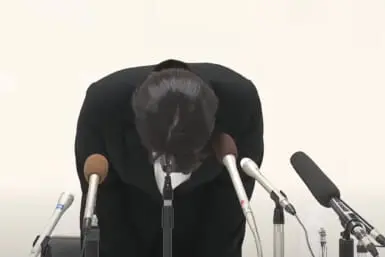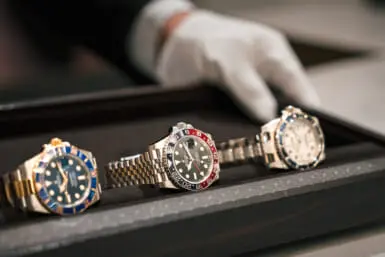by Joseph Precker
Dear Dr. Precker:
I’m an artist, a young unknown artist, which means I have lots of financial problems, little support from family, doubts on the part of friends in regard to my talent and, of course, serious personal doubts about my own ability.
In addition, my love life is a mess and there are times when I think I’m “going mad” (not really, but I get very depressed). Sometimes I think I should see a psychoanalyst, but other times I fear my talent, my temperament and my art would suffer and I’d lose all those special things that make for being an artist.
May I have your honest opinion about the value of psychotherapy of psychoanalysis for people like me?
Dear Struggling Artist:
Your dilemma is not a new one. There is the popularly held belief that making life work more effectively on the personal level deprives people, particularly “artists,” of their very special skills, abilities, motivations. In my observation, usually nothing is further from the truth; the reverse is usually the case.
There are two different cultural factors which have created myths about “talent.” First, in our westernized world, there is the romantic stereotype of the struggling artist. The artist (in any of the special forms of creative life) is conceived by many as neurotic, poor, struggling against the constraints of society, often mad, certainly rebellious, unrecognized in their lifetime, and glamorously “unhappy.”
There are, of course, some artists who are (or have been) neurotic, poor, struggling, mad, rebellious, unrecognized and unhappy (glamorously or not). However, a review of the lives of most artists about whom a good deal is known, does not substantiate this stereotype which has been supported by novels (and films) such as Irving Stone’s “The Agony and the Ecstacy,” “Lust For Life” and artists themselves.
Yes, of course, artists have many troubles and struggles, for money, fame, commissions, patrons, self-assurance and so on. But are these difficulties greater than those of anyone else who is gifted, ambitious, achievement-oriented, sensitive, and trying to deal with the realities of a hard, competitive world?
My own observations and experiences lead me to doubt the “specialness” of the artists’ situation except in so far as they face the vicissitudes and uncertainties confronting anyone attempting to seduce that most illusive of temptresses—the one who has been called “that bitch—goddess, Fame.” Yes, artists are “special” as are all people endowed with special gifts.
In the annals of art and artists there are many who achieved fame, fortune, recognition early and consistently. Once a standard for performance is clear in a given culture of a given time and the artist possesses those skills and that “vision” which society rewards, the path to achievement is often smoothed.
Rembrandt painted many great paintings, appreciated early in his time: going bankrupt was not “society’s” doing, but perhaps his own. Michelangelo received more commissions than he could possibly fulfill in a lifetime: not being pleased with them but feeling constrained to fulfill some of the less “pleasant” ones was, in part, a reflection of his own thorny personality.
Oscar Wilde’s clever plays, charming children’s stories and parables, dictates on art and life, were recognized and highly rewarded quite early: his unfortunate fate and demise came about, perhaps, as a result of excessive hubris.
The second cultural myth about art is that “it is dangerous for the artist to know too much about themselves.” Once again, my observation and experience is just the reverse: I am aware of many figures in all realms of art today who have benefitted considerably through the assistance of a skillful psychotherapist.
This is also true of scientists, politicians, businessmen and women, physicians and others. Frequently the creative person is ambivalent and conflicted about many aspects of their own life (as are most sensitive people). Ambivalence and conflict use up considerable emotional energy.
Through clarification and resolution of these retarding factors, it is often possible to achieve much more in one’s chosen realm of activity, and to put creative talents to better use.
Leonardo da Vinci was the first great artist to be put under psychoanalytic scrutiny, several hundred years after his death! Freud was intrigued and wrote a “psychonovel” about da Vinci’s early experiences, attempting to demonstrate how his art and curiosity, many years later, were affected by certain very real infant and childhood experiences.
Freud also freed Gustav Mahler to create some of his greatest music, and Bruno Walter to continue a distinguished conducting career.
There are few outstanding writers, playwrights, poets, painters, sculptors, actors and dancers who have not benefitted from the psychotherapeutic processes in this century. In most cases, their work has become more sensitive, more creative and, sometimes more recognized as they became masters of themselves.
One thing the proper treatment can do is release more of that wonderful spontaneous awesome creativity of the child, which lurks in all of us, but too frequently is covered-over by the so-called rational demands our society imposes upon us. Strict attention to such demands may be necessary for the accountant, plodding businessman without entrepreneurial skills or ambitions, the production-line engineer.
However, the creative person, in art, science, business, religion, education and in life, can use all the spontaneity and creativity they can summon, particularly as they become free to focus and to channel it in skillful pursuit and fulfillment of their creative aims.
It behooves me not to mention any names of living artists around the world who have benefitted from proper psychological attention. There remains much doubt, fear and overt hostility toward the process.
Mention art and psychoanalysis and someone is likely to remind you of its real or imagined dangers: “Yes, but what about George Gershwin, in analysis for years, and he died too young, of a brain tumor!”Yes, but what about George Gershwin, in analysis for years, and he died too young, of a brain tumor!








